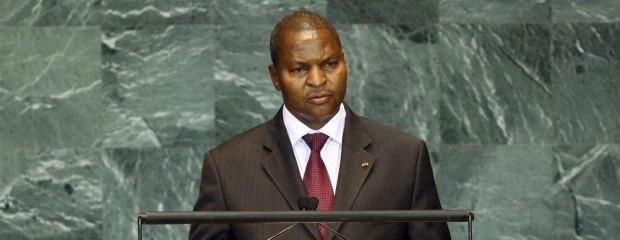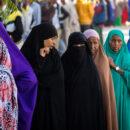Is it Worth Trying a No-Fly Zone?
With the current controversy in the U.S. over the idea of a no-fly zone in Darfur, it’s worth reflecting briefly on the role of the Sudan airforce in the Darfur conflict and the measures taken thus far to restrict air attacks against civilians. My argument: a no-fly zone is inefficient, nearly pointless, and almost sure to be counterproductive–and there are other options worth trying.
The first point is that air attacks have never been the most important element in the government’s war. Ground attacks have been far more significant, and they have only intermittently been coordinated with air assaults, chiefly during the major offensives of 2003 and 2004.
Sudan has a relatively small airforce: according to the most recent Defence and Foreign Affairs handbook it has 23 attack aircraft, 12 attack helicopters and 10 bombers (five of them Antonov transport planes, used for bombing by dint of rolling the bombs out of the cargo doors). The Antonovs have been the favored air weapon, because they are simple to use, though inaccurate. They kill a lot more livestock than they do human beings.
There are no reliable figures for fatalities from air attacks this year, but it is likely that they number in the dozens. A crime, yes. A genocidal instrument, no.
The principal value of the airforce has been to terrify the civilians of Darfur. For a government to bomb its own people is an advertisement that it is at war with its own people. The sight and sound of military aircraft instill fear and often make people flee.
The airforce was used more extensively in Southern Sudan and the Nuba Mountains during the wars there. But it never compared with some other wars in Africa, notably the Somali civil war when the Somali government destroyed the city of Hargaisa using aerial bombardment and ground assaults in 1988, and the Ethiopian civil war and Eritrean war of liberation (1974-91) when, for fifteen years, there were so many daily air attacks that in vast areas of the country, no-one and nothing moved during the daytime. Hundreds were killed by aerial bombing each month, with more than 1800 killed in the single worst atrocity in the war at the market town of Hausien. Nothing in Darfur has ever compared to such atrocities from the air.
I have not discussed the proposal of a militarily-enforced NFZ with the NATO planners who would be called upon to enforce it, but I suspect that they consider it vastly complicated and expensive, for very modest outcome. The Iraqi NFZ under Saddam Hussein was difficult enough, and Saddam possessed 650 fighter and bomber aircraft in a smaller area than Darfur.
This is not to argue against stopping the Sudanese airforce from flying. The Sudan government has repeatedly committed itself to halting offensive military flights (see DPA paragraph 226(j)). The DPA provides for AMIS or its successor to monitor this ban on offensive military flights (paragraph 375), saying "for this purpose SOMA is applicable." SOMA is the Status of Mission Agreement, which provides AMIS with unrestricted access 24 hours a day to all airfields.
The key question is how to enforce this prohibition on offensive military flights. A militarily-enforced NFZ would involve shooting down military aircraft, and would certainly result in the grounding of all flights—military, humanitarian and commercial. I need not spell out the humanitarian disaster that would follow.
Can the ban be enforced by ground monitoring? This is the position that I have been advocating (for example in my testimony to Congress), making the point that the mechanism has not been properly tried. AMIS has simply not insisted on monitoring airfields, and the mechanisms for reporting violations to higher authorities have not been made operational. This is simple, low-cost and low-risk. It’s based on the method of naming and shaming, which has been proven to work in Sudan. The monitoring, reporting and condemnation have to be rigorous and consistent, but that is a lot easier than the high-cost, high-risk, reckless, not to say inhumane, option of dispatching U.S. or NATO military aircraft over Darfur with a mission to shoot Sudanese aircraft out of the sky. Let’s try it.







Psychology research suggests that punishment can both increase and decrease aggression (Bower & Hilgard, 1981; cited in Franzoi, 2006). The research suggests that punishment can only be effective if it is administered reliably prompt following the aggressive act in a way that is moderately strong. Even with these three conditions met, punishment may actually increase aggression.
Of course, aggression research based on individuals in a laboratory cannot be counted valid for predicting future aggression from a government. However, if sanctions prohibit more than flying military aircraft-if sanctions hinder trade and/or humanitarian aide, the civilians hurt by the sanctions will see them as punishment on them for government and janjiweed aggression. Two possible results: 1) increased resentment from the Sudanese people towards the international community and support for the Khartoum regime 2) The Fostering of a sense of victimization against those hurt by the sanctions and increased feeling of solidarity with the targets of the sanctions (the Sudanese government). Those hurt by the sanctions will join the in-group of the Bashir regime. Those whom the in-group perceives as responsible, the UN (and probably especially the US) will constitute the vile out-group.
While himself living a life of luxury, Saddam Hussein manipulated oil sanctions to project an image of victimization by the West. Bashir will try the same. He will exaggerate the sanctions’ effects for his benefit, making things even worse on victims of the sanctions in order to attract support for himself and demonize the United Nations and the United States.